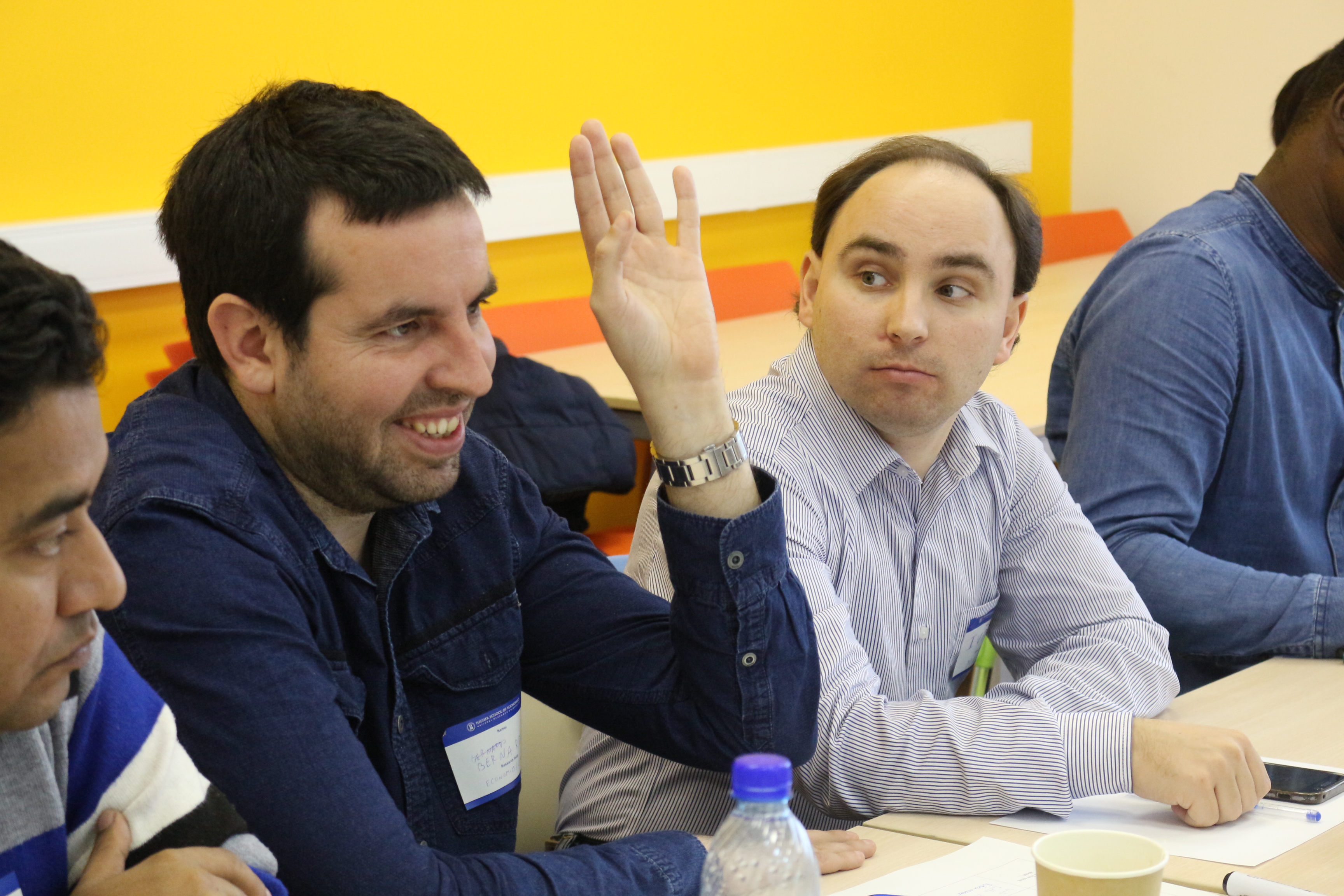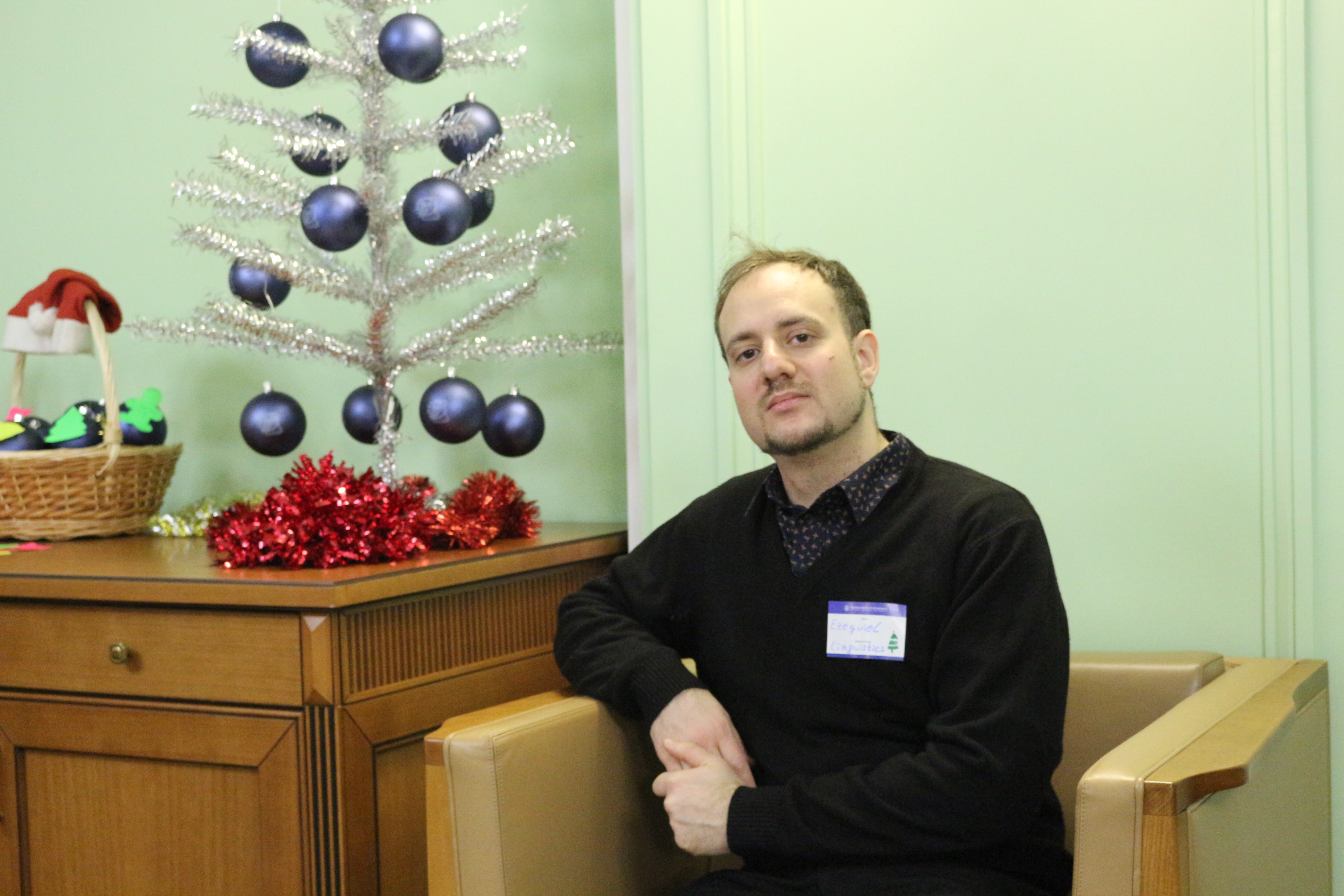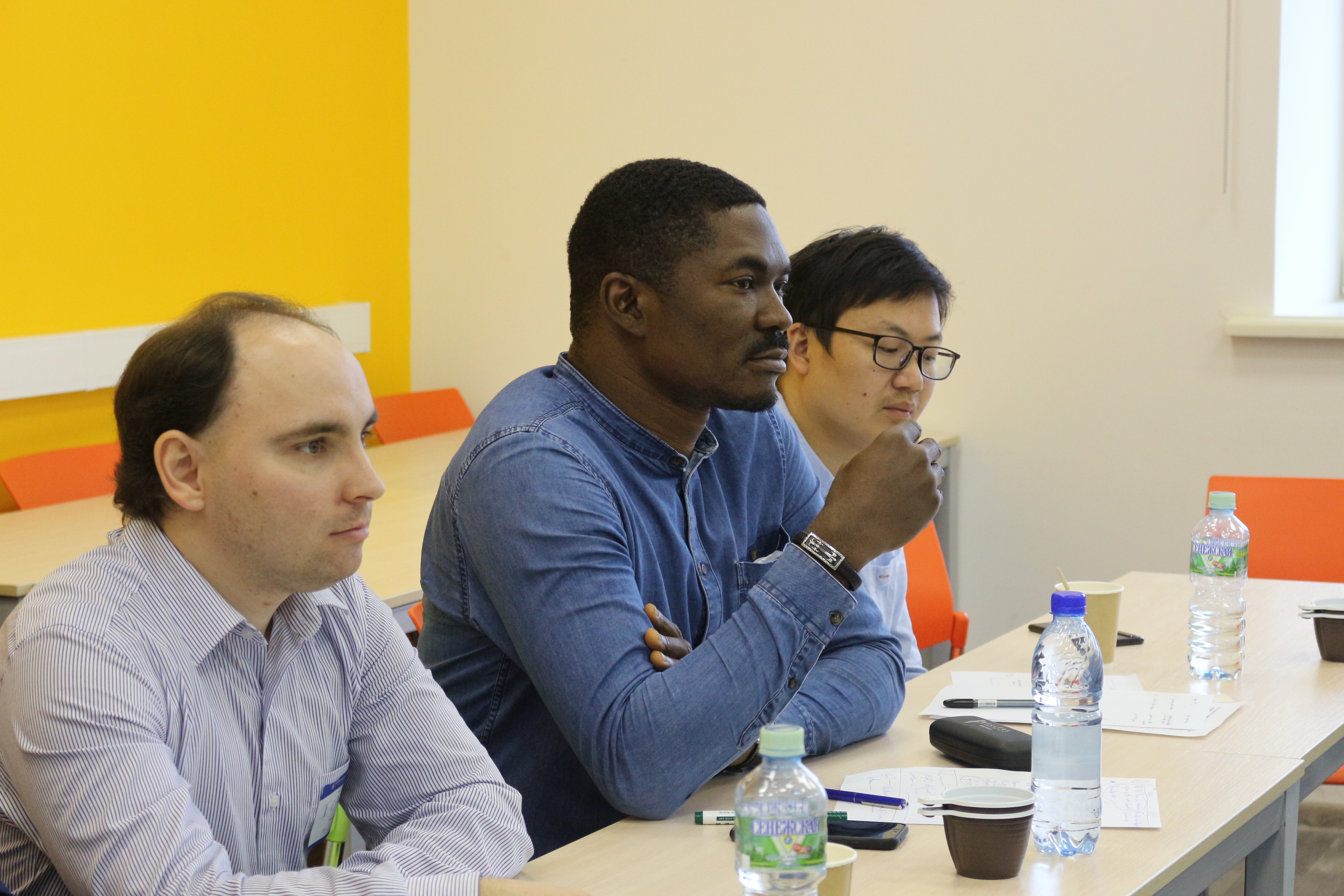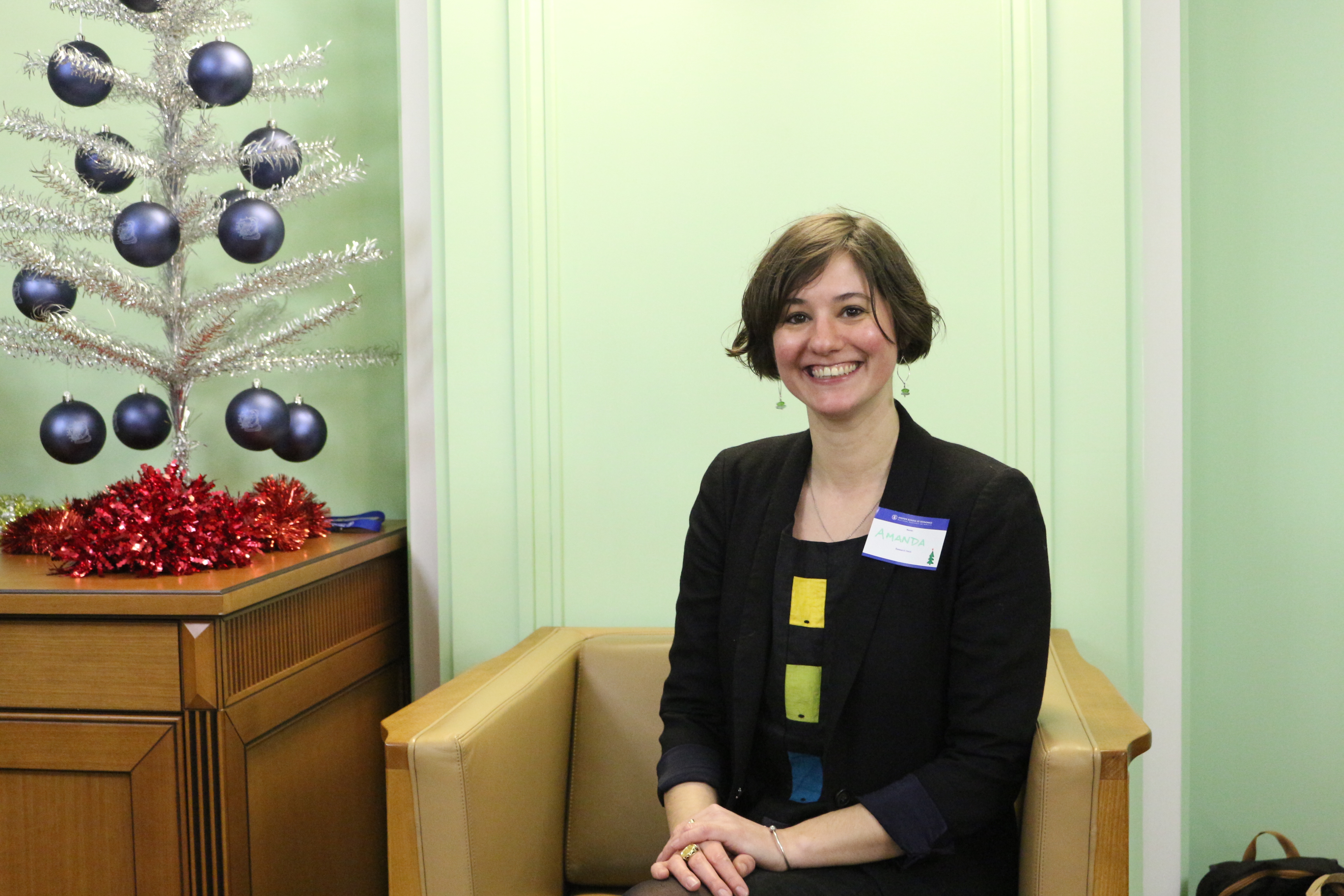- A
- A
- A
- АБB
- АБB
- АБB
- А
- А
- А
- А
- А
A Postdoc Odyssey
he postdoctoral position is a unique phenomenon, whereby one is no longer a student and yet not a faculty member. The mobile nature of this position makes such people ambassadors of global research. Furthermore, postdocs play an important role in higher education as universities seek talented researchers while recent graduates need professional development.
HSE University runs two programmes – for postdocs who received their PhD abroad (started in 2014) and for holders of a Russian Candidate of Sciences degree. The HSE Look invited international postdocs and their hosts from different fields to speak about such issues as support and collaboration between a postdoc and their host institution, adjusting to new cultural and linguistic environments, and alternative career paths for postdocs. We will continue consider these issues in the second part of this article, which will be published in early January.
The success of a postdoctoral fellowship programme depends on an effective alliance between the academics and administrators involved. We talked about the specifics of this cooperation in running the HSE Postdoctoral Fellowship Programme with three colleagues who combine academic and administrative responsibilities: the Deputy First Vice Rector and the directors of two research centres who have been involved in the programme since its inception in 2014.
Dr Valentina Kuskova in her role as Deputy First Vice Rector, coordinates the recruitment of international postdocs. She is Associate Professor at the HSE School of Sociology and the head of the HSE International laboratory for Applied Network Research.
Dr Oleg Budnitskii is Tenured Professor at the HSE School of History and the head of the HSE International Centre for the History and Sociology of World War II and its Consequences. The centre has accepted 18 postdocs the last six years and now hosts postdocs who earned their PhDs at Oxford (Anthony Kalashnikov) and Princeton (Dmitry Halavach).
Dr Andrei Yakovlev is Tenured Professor at the HSE School of Politics and Governance and the head of the HSE International Centre for the Study of Institutions and Development. The centre has hosted nine postdocs since 2014. This academic year, it welcomed Milos Resimic (who received his PhD from University in Budapest) and continues to collaborate for the third year with Amanda Zadorian, who completed her PhD at the New School for Social Research (New York).
Andrei Yakovlev: A postdoc is a research position held by recent PhD graduates. They are looking for a permanent position, but prefer to spend a year, two or three at another university. This is a good option, which gives you the opportunity to finish the articles that you started while working on your dissertation, to publish them and to enter the job market. In addition, this is an opportunity to establish new contacts and get access to new data.
Oleg Budnitskii: A significant amount of a postdoc's time is spent looking for a job. Therefore, I would call it more social than research position. However, that does not matter as much. It can still benefit everyone, and academia cannot be imagined without it.
Valentina Kuskova: Postdocs in Russia are a new phenomenon. The first reason for this is the difference in PhD training in Russia and abroad. From my own experience from pursuing both Master's and PhD degrees in the USA and from my work here, I can say that the Russian ‘Kandidat Nauk’ (Candidate of Sciences) degree is not the same as a foreign PhD degree. Holders of Candidate of Sciences degrees, in its classic form, are more prepared for independent work. Or, they are already researchers with their own publications, sometimes, in large numbers. Whereas graduates of foreign PhD programmes can receive a degree without having any publications, in certain fields, they are not required at all. PhD training, therefore, consists of obtaining theoretical knowledge for conducting research in their respective discipline, while also gaining the practical skills necessary for further development.
The second reason is the lack of understanding of the notion of academic ‘inbreeding’ and how this can affect the development of science. The longer a specific school of thought operates, the more there are graduate students with a similar a theoretical approach. In addition, when we do everything the same way, there is no breakthroughs or innovations. A new perspective is what is needed for development. This does not mean that a new perspective is better; it is just different. Therefore, a postdoc may leave their home university for a couple of years in order to meet new people, engage in research practices elsewhere and learn new approaches.
An overlap in the understanding of the differences between the Russian postdoc programme and international postdoc programme may arise since Russian citizens are also eligible to participate in the international postdoc programme. The main criterion is education (a foreign PhD) and training skills received at the best universities abroad; the fact that one may hold Russian citizenship is neither a limitation nor an advantage.
Andrei Yakovlev: The first round of the programme was different in its design. It then focused on faculties and departments, and was intended as an additional channel for recruiting future professors. I suggested the design that still exists today. It is about inviting postdocs to specific projects. As such, the programme was redirected for research units, i.e., international centres and laboratories.
Valentina Kuskova: In the past, the first postdocs were selected by administrators. Now, the selection process is under the direction of the research units. They are passionate about accepting postdocs and can see their value: every year there are incredible battles in this field. In this year's competition, there were 147 applications, already pre-screened by the centres and labs, for a total of 50 places.
At the start of the programme, we received responses from the fields where postdocs are the norm, e.g., from the Institute for Cognitive Neurosciences. Over time, more and more centres and laboratories started joining the programme, including those in areas where postdocs are traditionally not accepted, e.g., in Economics. 80-90 research units take part in the competition annually. The geography of the programme remains stable and reflects where the supply of researchers is coming from to the market: most of them are from the USA, but then the geography begins to change depending on the given field. For example, Computer Science has been actively developing in India, and we have many applications to the Faculty of Computer Science laboratories from there.

The mission of the postdoc programme
Oleg Budnitskii: Often, postdocs and 'postdochki', as I call them, are former students of our colleagues from abroad. This world is large and small at the same time. My colleagues and I have personal contacts with leading researchers in the best graduate schools worldwide: Princeton, Berkeley, Georgetown, Toronto, Oxford, Kings College London, among others. Some of them are fellows of our Centre. But of course, we accept as postdoctoral fellows graduates from any universities as the main determinants are research outcomes and research potential of applicants. I prefer to deal with young researchers, as they have a special drive, and at some point, I came up with the idea of the Forum of Young Researchers in addition to our large annual conference. The number of places (maximum 20) is limited due to the format – pre-circulated papers, just one hour per participant, so we can have active discussions. The forum contributes to the development of the international community of young history researchers, and several of our postdocs come from there.
Valentina Kuskova: The HSE International Postdoc Programme began before its sister programme – the HSE Russian Postdoc Programme – and was initially integrated into the University's internationalisation strategy. We understand that they come to us to finish and publish their dissertations. We do not expect them to make serious contributions to research, at least not from the very beginning; their task is to diversify our research environment as much as possible. After all, they bring us the latest knowledge in their respective fields. This gives our local colleagues an opportunity to see what is being done abroad, and, thus, it softens the negative effects of this aforementioned ‘inbreeding’. At the same time, this is a win-win situation, since our researchers can help postdocs to develop further. As for the HSE Russian Postdoc Programme, the participants are from Russia with similar research approaches. However, they can and do occupy administrative positions, teach with greater confidence than the young foreign postdocs. This, in turn, makes me think that the field of their engagement might be even wider.
In addition, the International Postdoc Programme allows us to spread our best practices abroad. This is our opportunity to show that we can do science too. In the Russian Postdoc Programme, we also share best practices, including the internationalisation of laboratories, but within Russia.
Oleg Budnitskii: In this respect, the International Postdoc Programme is an important contribution to building the reputation of our institution. We regularly participate in international forums, as organisers and participants, with the World Congress of the Association for Slavic, East European and Eurasian Studies as the key event. Informal gatherings at such venues are just as important as panels. During the 2017 congress, our former postdocs hosted a special graduate dinner in Chicago. They actively publish and are incredibly successful in many research universities over the world such as McGill, Free University of Berlin, or Glasgow. As one of our former postdocs said, if you visit us as a postdoc, then everything in your life will be fine. And it is not just a joke.
Andrei Yakovlev: The main goal of a research centre or a laboratory is to attract for a year or two a young expert who works in an area close to ours so that they can take part joint projects. There is also a certain pragmatic element as research units have budget constraints and need to find money when they want to hire a new employee. The postdoc programme provides an opportunity to attract a capable and proactive people, using the resources allocated by the University’s central budget. We understand that this is for a while, but that is why the second track with tenure-track positions at the faculties and schools is important – if a collaboration turns out to be effective, we have an incentive to help the hired specialist to integrate and stay on at HSE. Yes, they will formally work in the teaching department, but will also most likely work in collaboration with us. This combination of goals was what happened, for instance, to Israel Marques.
Oleg Budnitskii: In addition to research, the postdoc programme is an effective channel for producing staff for the HSE School of History. Usually, the postdocs' responsibilities do not include teaching, but some do teach on their own initiative. For instance, Seth Bernstein did a dissertation on the Komsomol in the 1930s and offered a special teaching module on Soviet history. Some at the School believed that we knew everything about the Komsomol and nothing new could be said, but I completely disagreed. Mikhail Bakhtin once said that the culture of any country can only be understood from the outside. Later, Seth published the book ‘Raised under Stalin: Young Communists and the Defence of Socialism’ at Cornell University Press, with a Russian translation following soon after that.

Postdocs’ motivation and goals
Valentina Kuskova: Why would a postdoc come to HSE? Well, Russia remains a source of unique data that is not available if you do not actually come here. In addition, Soviet Russia was isolated from the world research community for a long time and we developed our own schools of thought in many fields, especially, the social sciences. Moreover, often postdocs come to a significantly different area, thereby reducing their own risk of inbreeding.
Oleg Budnitskii: Where else can those who study Russia go for such topics as the history of the Soviet rouble in the post-war period, or Soviet photography? For instance, Tommaso Piffer, a graduate of Bologna University was writing a book about the resistance movement in Europe and was told that it was impossible to do it without looking at the Soviet Union case and its powerful guerrilla movement. Tommaso came to talk with researchers (as it is impossible to communicate with guerrilla fighters for obvious reasons), work in the archives and learn Russian. Later, he wrote a book and now teaches at the University of Udine in Italy.
Valentina Kuskova: The second reason is forging bonds while working in a unique and world-famous centre or lab and, at HSE, we have such prestigious and top-notch research units.
Oleg Budnitskii: In the early post-Soviet period, only a few people, who studied Russian history, could do it at an international standard, including fluency in foreign languages, understanding of world historiography, and using non-standard independent approaches and methods. At our centre, we do have people with such qualities: many of us have significant experience of living and working abroad, and we all have numerous publications in different languages. For example, Oleg Khlevnyuk's book ‘Stalin: New Biography of a Dictator’ was published in almost 20 languages, and my book ‘Russian Jews: Between Reds and Whites’ was recently published at the University of Pennsylvania Press. I spent three years in the United States (twice as a visiting scholar at Stanford, and a year at the Holocaust Museum in Washington) and six months at Oxford. Liudmila Novikova lived in the United States for several years; she recently published a translation of her monograph on the civil war in the North with the University of Wisconsin Press. Moreover, we organise study and research abroad programmes for our interns and fellows. For example, we have a joint programme with the Holocaust Museum, and every year two people go on a six-week internship. In 2019, we conducted training for the centre’s team at the School of Advanced Studies in the Social Sciences (EHESS) in Paris.
Andrei Yakovlev: I was a postdoc myself, in 2002-2003, under the Scholarship Programme of the Federal Chancellor of the Federal Republic of Germany through the Humboldt Foundation, and spent a year at Forschungsstelle Osteuropa at the University of Bremen. It was extremely productive, as I was able to take a break from the administrative routine (I was a vice rector) and switch to more academic work. At the same time, my circle of contacts expanded significantly. I read a lot of new literature and this shifted my research focus from analysis of firms’ behaviour to the political economy issues. During this year, I wrote the first draft of an article that is still my most cited article (The Evolution of Business-State Interaction in Russia: from State Capture to Business Capture, published in Europe-Asia Studies in 2006).
Valentina Kuskova: Another motivation to participate in the programme is the return to Russia of compatriots who previously left the country, received a good education abroad and are looking for employment opportunities that do not radically differ from the conditions at institutions abroad. Without this programme, they would not have returned.

The nature of collaboration between postdocs and their host institution
Andrei Yakovlev: As for the extent of independence in a postdoc's own research, the very design of the programme allows them to be incorporated into the centre’s research agenda. The centre welcomes new colleagues who work within the framework of its research, and at the same time, a colleague, working independently and implementing his/her ideas, can also be integrated and receive additional information, contacts and support from the local colleagues. An internal discussion is currently underway regarding the refinement of the centre’s development strategy; next year we are celebrating 10 years since our foundation. One of the conclusions from the internal review was that there should be a meaningful counterparty for postdocs. This would not just be a mentor, but an internal partner with whom a postdoc could discuss analytical results on a daily basis, in addition to presentations at more formal seminars. Furthermore, we need this counterparty ourselves if we want to integrate postdocs more effectively into our projects. Sometimes it has worked out, but sometimes it has not. For example, our third-year postdoc is Amanda Zadorian, and her research is a comparison of oil companies in Russia and Brazil. We did not have a direct counterparty for her. Amanda is doing well on her own, but there could be probably more publications if there was a Russian colleague for regular discussions.
Oleg Budnitskii: I do not differentiate between junior and senior scholars. Boris Pasternak once wrote, ‘whoever started is no longer a beginner.’ If you do something in scholarship, you must do it with all your heart and inner strength, regardless of one’s age. None of us has enough knowledge, neither do I. If you think you have learned everything, it is time to retire. Postdocs are accomplished researchers, albeit young. I sometimes give my texts to postdocs and get valuable feedback.
Andrei Yakovlev: I agree that the relationship between the postdoc and their host is more equal. A PhD student is still doing research and needs PhD supervision. A postdoc has already conducted research and is doing the finishing touches on academic articles, but these are their own articles. Thus, there is no real need for a top-down supervisor.
We measure the success of collaborations with postdocs through publications and joint projects. For instance, Israel Marques had a large project with Thomas Remington and myself to analyse professional education in Russia in terms of interactions between enterprises, technical schools, and regional authorities. There were many publications, and with this project Israel won a grant from the Russian Science Foundation. However, publishing cycles are long, usually it is not possible to expect an article in the same year that postdoc is working with us. For instance, Michael Rochlitz only recently published an article in The European Journal of Political Economy, which he started when he was a postdoc in 2014-2015.
Oleg Budnitskii: In our field, co-authored publications are extremely rare: history is not chemistry or economics with laboratory research and 15 co-authors, this is an individual business.

Trajectories of postdocs
Oleg Budnitskii: Post-post-doc trajectories diverge with some colleagues staying at HSE on a tenure track, and others looking for other opportunities elsewhere. I can cite two examples from our centre – Seth Bernstein and Angelina Lucento. Seth – the best postdoc of all time – spent three years with us, and after that, he became an Assistant Professor at the HSE School of History. Seth got married and had a son. However, last year, he decided to move to the University of Florida after much contemplation. The history of Russia and the USSR is mainstream here, whereas in American universities this can be an important part of the research, but never on such a scale. Bringing in Angelina was very much my effort. She was interested in the social history of Soviet art of the 1920s, and someone said that this was not our profile. However, I always thought that it was necessary to strengthen the cultural component of the centre’s portfolio and for me her proposal was appealing. Moreover, we were not mistaken. She is now an Assistant Professor at the HSE School of History, speaks excellent Russian, and has received many scholarships and grants.
Andrei Yakovlev: I cite Michael Rochlitz and Israel Marques as my examples. Michael was one of those who came to take up a postdoc position, and then switched to a tenure track at the HSE Department of Political Science. Later, he accepted a job offer from Ludwig Maximilian University in Munich (now he is working at the University of Bremen). However, we continue to cooperate: he is our Associate Fellow, and in December 2020 we submitted a joint application for the Russian Science Foundation and DFG. Last year, we did together a seminar at his home university in Bremen. Israel worked with us while he was still a doctoral student of Timothy Frye, the Academic Supervisor of the centre, and for five years he spent several months a year with us, which was useful both for him, since he was studying Russia, and for his Russian colleagues. After receiving his PhD from Columbia University, he came here as a postdoc, and then went on to a tenure track at the HSE Department of Political Science. I think he will soon be able to apply for a tenure position.
The impact of the pandemic
Oleg Budnitskii: Regarding the pandemic, my personal experience is that I have written much more a lot since the beginning of the self-isolation than I would have written otherwise. The administrative meetings have been simplified, I would keep them stay online and only in exceptional cases would they be conducted face-to-face. In situation with postdocs, this position implies working in the archives. When they go all digital it will be different, but during our life and the lives of our postdocs, this is unlikely to happen. Right now, postdocs actively participate in our seminars on the Zoom, and the general attendance of our on-line events is much higher than that of the regular seminars before the pandemic. As historical optimists, we always try to look at the brighter sides of life, even under these difficult circumstances.
Valentina Kuskova: For me, the online postdoc process is a difficult issue, partly because I am the Academic Director of a Master's programme, which was one of the first to shift to a digital track. In addition, I believe that online learning is the future, as it is also an opportunity to enhance one’s education through learning with students from different countries. Moreover, as much as I am for online learning, I am just as strongly against online postdocs. What is a difference then between an online postdoc and a collaboration between two colleagues from different universities in different countries? If postdocs are held fully online, they cannot be part of environment or the team. They do not see the funny jokes on the fridge door, or they do not discuss the weather and views of Moscow. Face-to-face communication is also important for students, but they mostly build ‘horizontal’ connections, while postdocs also need to integrate with their senior colleagues.
Andrei Yakovlev: When we talk about the seasoned scholars whom we hired on the basis of distance contracts, the online mode of cooperation is not a challenge. However, when we talk about young researchers, it is important for both them and us that they are here physically. You can work alone in isolation, but especially when colleagues are still developing professionally; direct personal communication is certainly beneficial for them. I can't imagine achieving that via Zoom.